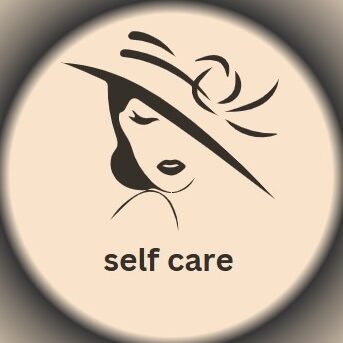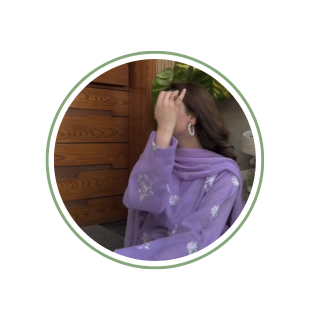In today’s world, self-care for stress, anxiety, and burnout has become more than just a passing trend — it’s a reflection of how people truly feel and what they are struggling with inside.
This line reveals a simple truth: most people don’t turn to self-care just because it’s fashionable — they turn to it because they’re tired, overwhelmed, or emotionally drained. Behind every search about “self-care routines,” “mindfulness techniques,” or “how to relax after work,” there’s often a person trying to find peace, calm their mind, or recover from emotional exhaustion.
1. The Real Core Motivation Behind Self-Care
The word “core motivation” here means the deepest reason or true purpose that drives someone to act. When it comes to self-care, that motivation often comes from pain or imbalance — a need to restore something that’s been lost.
For example:
- Someone who feels constant pressure at school or work might search for ways to relieve stress.
- A person who experiences sleepless nights due to worries may turn to anxiety-reducing activities.
- Someone who feels emotionally numb or unmotivated might be experiencing burnout, and self-care becomes their way to recover.
So, when people talk about or search for self-care, they are usually trying to regain control of their mental and emotional health. It’s a silent signal that they’re looking for ways to feel human again.
2. Why People Are Searching More About Self-Care
In the digital age, whenever people feel something deeply — sadness, exhaustion, loneliness — they often turn to the internet to find solutions. Search engines like Google have millions of queries such as:
- “How to stop feeling anxious”
- “Morning routine for peace of mind”
- “Ways to prevent burnout”
These searches show a pattern: people are not just looking for beauty tips or skincare rituals — they’re looking for emotional relief.
The conversation surrounding self-care on platforms like Instagram, YouTube, or TikTok reflects this shift. Influencers and mental health advocates talk about resting without guilt, setting boundaries, and prioritizing mental peace. This shows that people are realizing that self-care is not selfish — it’s essential.
3. Stress, Anxiety, and Burnout – The Real Triggers
Let’s look more closely at the three major emotional conditions mentioned in the line — stress, anxiety, and burnout — because these are the main reasons people are drawn to self-care.
- Stress is something almost everyone experiences daily. It could be from school, work, or even personal expectations. When stress becomes constant, it affects both body and mind — leading to headaches, fatigue, irritability, and loss of focus. That’s when people start searching for stress relief techniques such as deep breathing, yoga, or taking digital breaks.
- Anxiety goes beyond stress — it’s that constant feeling of worry or nervousness that doesn’t easily go away. Many people use self-care activities like meditation, journaling, and grounding exercises to calm their anxious thoughts. Self-care provides a sense of safety and helps them manage overwhelming emotions.
- Burnout is emotional and physical exhaustion caused by too much pressure and not enough rest. It’s common among students, professionals, and even parents. Burnout makes people feel detached, tired, and hopeless. That’s why modern self-care movements often encourage rest, saying “no,” and simplifying routines as forms of recovery.
So, the rise of self-care content and discussions clearly connects to how people are trying to cope with these modern mental health struggles.
4. The Role of Social Media and Online Communities
Social media has made self-care more visible and relatable. People share their morning routines, skincare rituals, or calming night setups — but behind these posts lies a deeper story. Most of them are not just showing “aesthetic habits”; they are showing how they’re fighting stress and anxiety in their daily lives.
The growing online conversation around self-care has created a kind of digital support system. When someone shares, “I took a break today and did nothing,” others feel comforted knowing it’s okay to slow down. This collective understanding helps normalize mental health care and encourages more people to talk openly about their struggles.
5. Why This Shift Matters
For a long time, people thought self-care was just about pampering — face masks, spa days, or bubble baths. But now, it’s seen as a mental and emotional necessity. The fact that so many people are searching for it means that they are finally acknowledging their need for balance, rest, and healing.
This shift matters because it helps break the stigma around mental health. When people talk about self-care in terms of managing stress and anxiety, they’re really talking about mental wellness — something that was once ignored or misunderstood.
6. A Reflection of Our Modern Lifestyle
Today’s fast-paced world demands too much — long work hours, endless notifications, academic pressure, and constant comparisons on social media. These factors leave people mentally drained and disconnected from themselves.
Self-care has become a response to this imbalance. It reminds people to slow down, breathe, and listen to their bodies. The growing search interest in self-care isn’t just random — it’s a mirror of how people are feeling collectively. They’re searching for peace in a noisy world.
7. The Bigger Picture – Healing and Connection
At its heart, this line reflects humanity’s need to heal and reconnect. Whether someone practices mindfulness, spends time in nature, or simply takes a break from their phone, it all comes from the same motivation: the desire to feel alive, present, and calm again.
It also shows how self-care has evolved into something deeper — a way to take care of mental, emotional, and spiritual health, not just physical appearance.
In Conclusion
The sentence “Reflects a core motivation: A significant portion of the conversation and search interest surrounding self-care is driven by people seeking to manage conditions like stress, anxiety, and burnout” is not just an observation — it’s a reflection of how society is changing.
It reminds us that self-care is no longer a luxury; it’s a form of survival in a stressful modern world. Every time someone looks up “how to relax,” “how to sleep better,” or “how to stop overthinking,” it’s a sign of hope — a small step toward healing.
Ultimately, the rise of self-care conversations and searches reflects a global movement where people are learning to value their peace over pressure, mental health over perfection, and rest over constant productivity. That’s the true core motivation — the need to simply feel well again.




